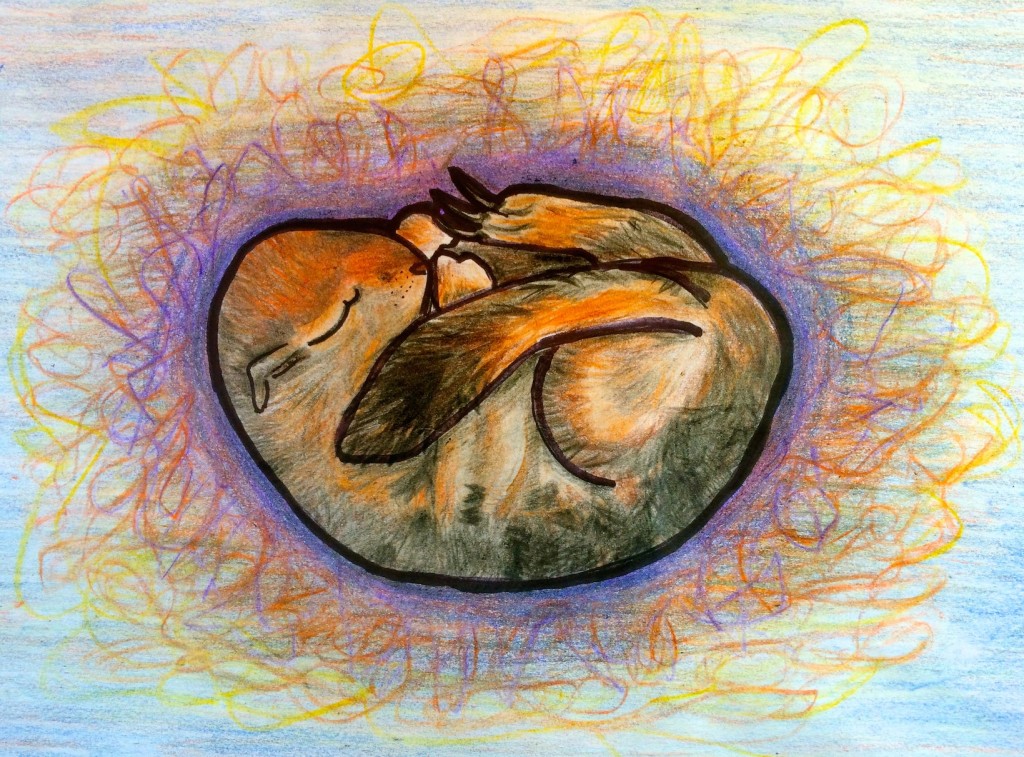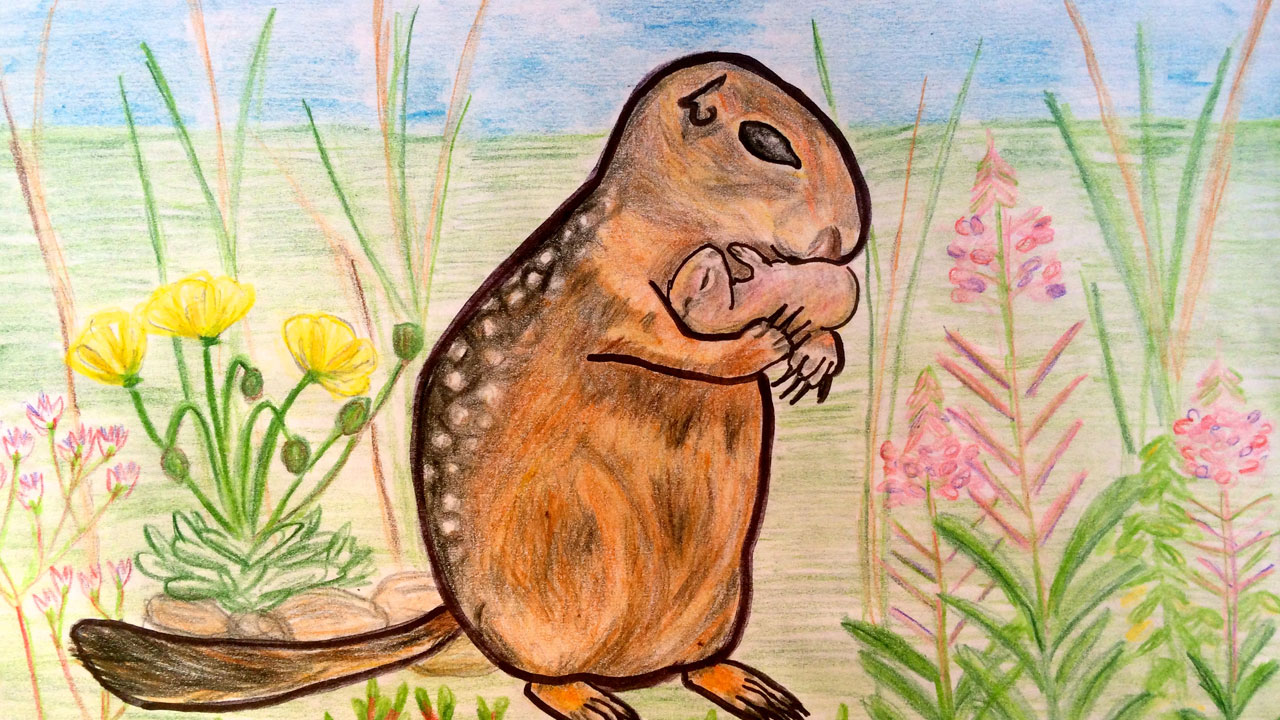
Story and art by Steph Yin
Edited by Katherine Ellen Foley and Jennifer Hackett
—
(sik sik)
I have only ever lived in places that cycle through all four seasons. These seasons break my year into movements, each with a different timbre and cadence. Summer is languorous, fall reflective. Winter is industrious, spring manic. I am glad there is a time for all these moods. I revisit them like old friends.
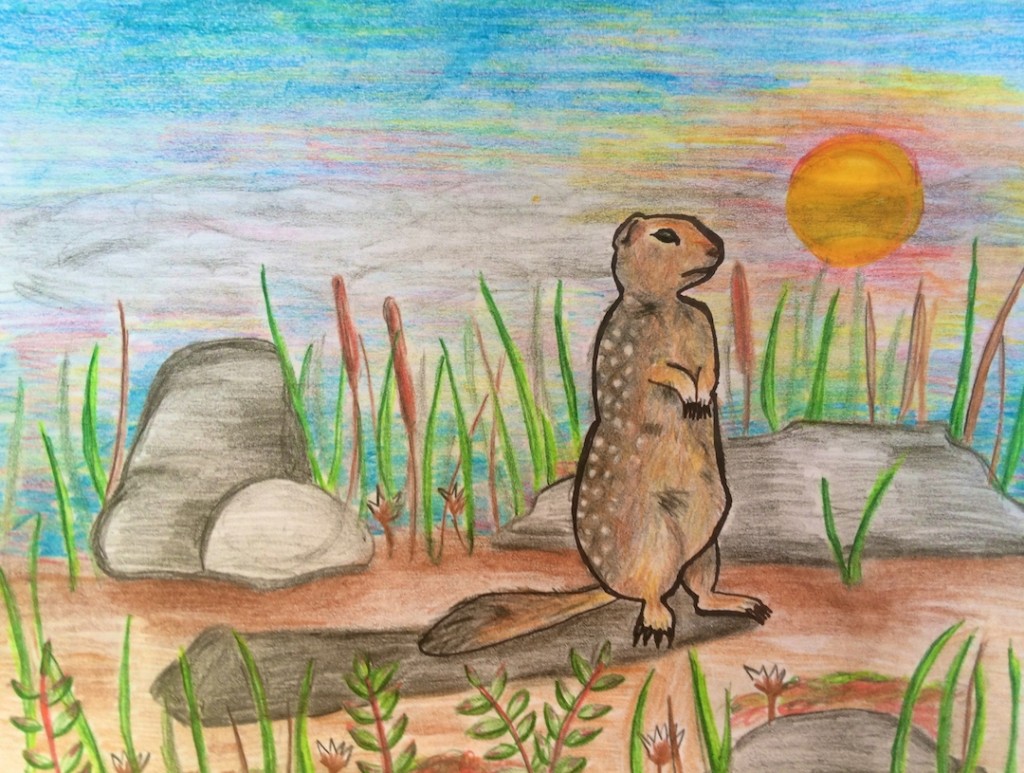 I wonder about the mother ground squirrels in the Arctic, called sik-sik by the Inuit for the short, high-pitched clicks they make. I wonder about how they spend more months below ground than above.
I wonder about the mother ground squirrels in the Arctic, called sik-sik by the Inuit for the short, high-pitched clicks they make. I wonder about how they spend more months below ground than above.
Arctic ground squirrels hibernate for seven to nine months out of the year. That leaves as little as 90 days to mate, give birth, wean their young, build their dens and stockpile enough fat to burn through the winter.
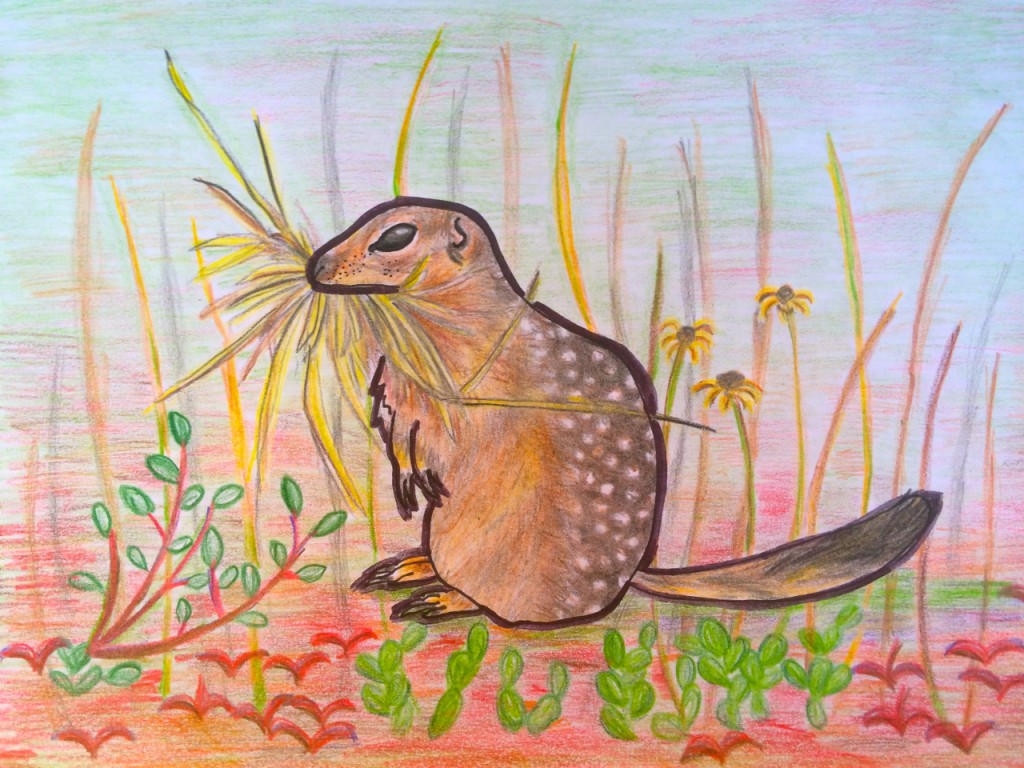 Summer is fading. The 24-hour day came and burned away. The Earth turns, the sun visits for a shorter amount of time each day.
Summer is fading. The 24-hour day came and burned away. The Earth turns, the sun visits for a shorter amount of time each day.
My milk ran dry a few weeks ago, and I weaned my pups. My body feels thin and empty. For replenishment I forage for grasses, seeds, berries, mushrooms and flowers, and my body starts to round out again. I line my den with grasses, lichens, leaves and sometimes the hairs of caribou. Soon I will settle here and greet the nothingness.
* * *
(lub dub)
Hibernation is not quite the same as sleep. When the Arctic ground squirrel enters hibernation, everything slows down. Her breathing dwindles to about three breaths per minute, her heart rate drops to one or two beats per minute.
(lub)
She reduces her metabolic rate by as much as 95 percent. Her body temperature dips as low as 27 degrees Fahrenheit, five degrees below the point at which water turns to ice, and the lowest body temperature ever to be measured in a mammal. The squirrel accomplishes all this in her grassy den, with nothing but the fat she has loaded onto her body.
(dub)
The ground squirrel’s hibernation is a physiological marvel. Even at a body temperature below freezing, her heart continues to pump liquid blood through her body. Before hibernation she purged her blood of particles such as food, dust or bacteria, removing any footholds for water molecules to congregate and form ice crystals around. She produces a special protein that prevents her blood from clotting.
While hibernating, the squirrel’s nervous system retains a baseline level of activity. She still reflexively responds to sound, touch and warmth. Her brain cells stay warmer than those in her body, possibly with the help of heat-generating proteins in their energy centers, or mitochondria.
In her brain, densely branched networks of neurons shrink and lose their dendritic limbs. When the squirrel awakens in late spring, though, new dendrites will blossom and repopulate her brain in just a few hours. The mechanism of this rapid recovery remains a mystery, but scientists think it may involve a protective protein named tau, whose malfunction plays a role in Alzheimer’s disease.
Every two to three weeks during hibernation, the squirrel thaws her body back up to a typical 98 degrees Fahrenheit for 12 hours or so. These episodes possibly eat up more than half of her energy stores through the course of hibernation, but they seem to be crucial. Just as heating a cold house every now and then prevents the pipes from freezing and bursting, these intermittent periods of warmth may help prevent the squirrel’s brain from deteriorating, or allow her immune system to awaken and fight off any diseases.
* * *
By the time the squirrel awakens, she is actually sleep-deprived. Her body was too cold during hibernation to allow for restorative sleep.
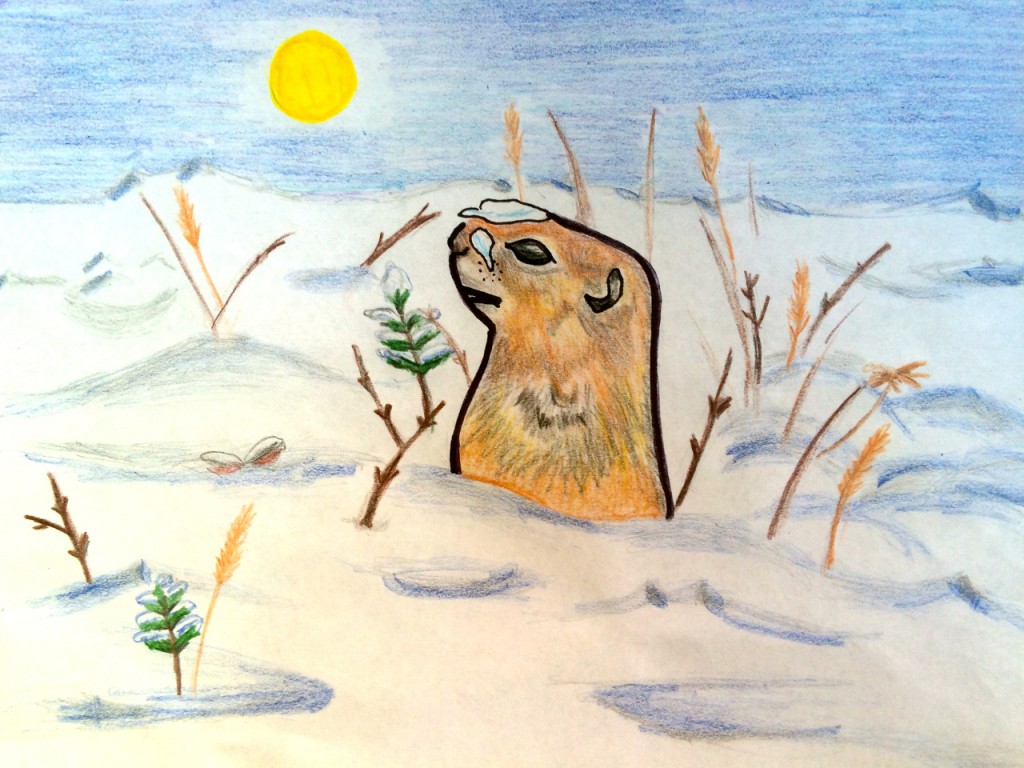 I’ve climbed out of my den. I am tired and emaciated, and the sun is an overbearing stranger. I watch the males fight to reach me. It’s likely my babies will have several fathers.
I’ve climbed out of my den. I am tired and emaciated, and the sun is an overbearing stranger. I watch the males fight to reach me. It’s likely my babies will have several fathers.
For 25 days, I will feel tiny claws and tails bud within me. Then, as gushing spring days trickle into viscous summer days, I will give birth to five to 10 hairless pups.
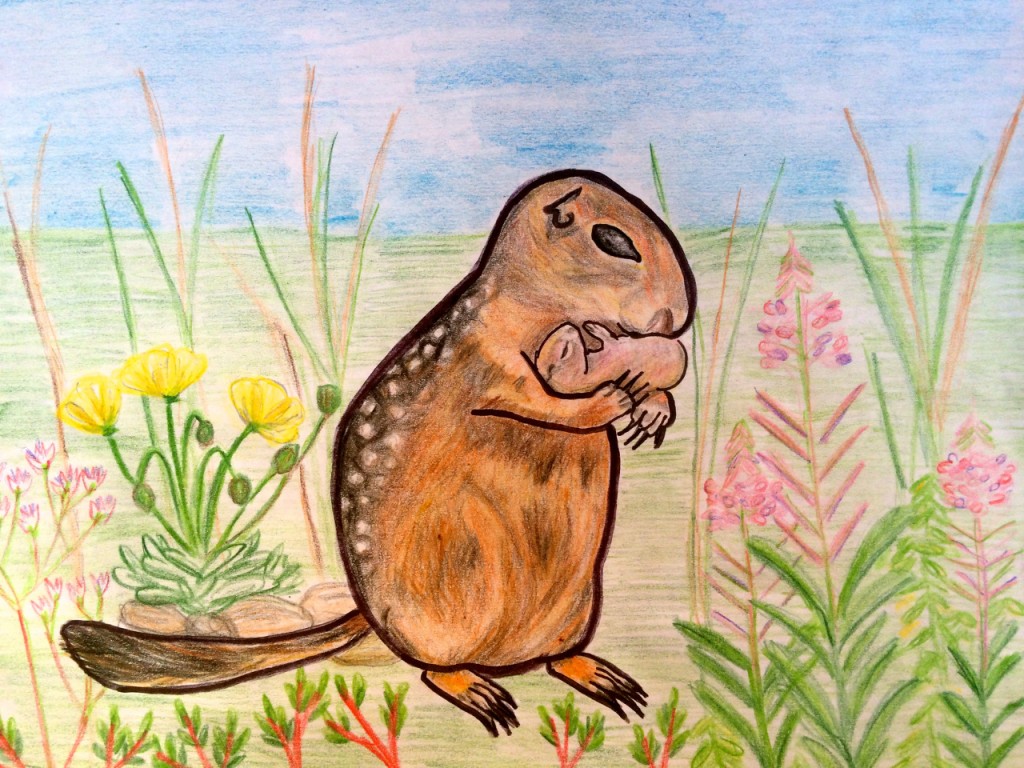 I wonder about mother squirrels in the Arctic, about how they spend their lives governed by the sun and by their babies. I think about what it’s like to have a nine-month gap in consciousness. Some days I will shrivel up, greet the nothingness. But the ice will thaw, my dendrites will regrow and all the while, blood will course through my body. The seasons will cycle on, marking the passage of time. Mate, feed, disappear, awaken.
I wonder about mother squirrels in the Arctic, about how they spend their lives governed by the sun and by their babies. I think about what it’s like to have a nine-month gap in consciousness. Some days I will shrivel up, greet the nothingness. But the ice will thaw, my dendrites will regrow and all the while, blood will course through my body. The seasons will cycle on, marking the passage of time. Mate, feed, disappear, awaken.
(sik sik)
